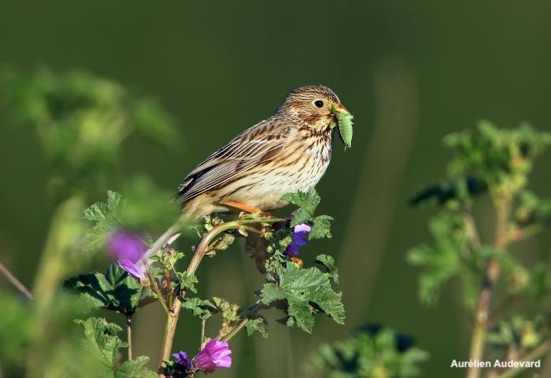News
18 May 2023
Agrochemicals: French authorities undisturbed by evidence on negative impact of industrial agriculture
During recent years, scientific evidence has been growing of the negative impact and unsustainability of intensive industrial agriculture. Hungerexplained.org has repeatedly referred to these proofs [read].
This month, a European study coordinated by the French National Center for Scientific Research (CNRS) [read] analysing the impact of various human activities on birds on the continent over 37 years, shows a more than 25% drop in the number of birds, agricultural areas being more affected (a reduction by more than half) than other territories. These results are based on data collected from 20,000 ecological monitoring sites in 28 European countries and concern 170 bird species. The four factors considered in the study are agricultural intensification, change in forest cover, urbanization and temperature change.
The study found that the key explanatory factor of this reduction of the number of birds is agricultural intensification through increased use of pesticides and fertilizer per hectare, as these agrochemicals modify the balance of ecosystems and disrupt the food chain on which birds rely. Birds, like insects and other pollinators [read] also suffer from the homogenization of landscapes resulting from the increase of agricultural plots and the reduction of hedges and other plant formations that constitute their habitat.

The study concludes on the urgency to revise totally the way we produce our food, in order to avoid the collapse of the biodiversity that is absolutely indispensable to our survival.
At the exact time when this study was published, the French Senate’s Commission on Economic Affairs adopted a transpartisan law proposal “for a competitive shock in favour of the ‘France farm’” [read in French] in which Article 13 grants to the minister of Agriculture the authority to overturn the decision by ANSES (the French Agency for Food, Environmental and Occupational Health and Safety) to ban the use of a particular pesticide.
Apparently, the French senators, although they generally want to project an image of seriousness and wisdom full of bonhomie, view competitiveness in the very short term as they give priority to immediate financial competitiveness of agriculture at the expense of a degradation of the production conditions that will threaten with time its sustainability, if the production technologies on which it relies are not changed radically.
Unfortunately, this attitude is that which is more predominantly adopted by French authorities, as is illustrated by the failure of the Écophyto plan that was to reduce drastically the use of pesticides [read].
In fact, the French food policy is quite inconsistent and it lacks totally of a clear vision. It operates by small decisions aiming mainly at meeting the wishes formulated by various interest groups and lobbies in order to keep them happy. This ad hoc method makes it possible to have in the same week a law proposal in favour of the use of proven dangerous pesticides and a token gesture in support of organic agriculture [read in French] that has been in a crisis since the beginning of the pandemic and whose difficulties have been aggravated by the current food price surge that leaves authorities paralysed and willing to let the food and retail industry free to handle the problem as it wishes.
————————————-
To know more:
Read:
-
•Rigal. S, et al., Farmland practices are driving bird population decline across Europe, PNAS, 2023.
-
•FAO, The future of food and agriculture – Drivers and triggers for transformation, The Future of Food and Agriculture, no. 3, FAO Rome, 2022.
Listen (in French) :
-
•Pourquoi 60% des oiseaux des champs ont-ils disparu en quarante ans ?, France Culture, 2023.
Selection of past articles on hungerexplained.org related to the topic:
Last update: May 2023
For your comments and reactions: hungerexpl@gmail.com


